Discover Data Skeptic
Data Skeptic

Data Skeptic
Author: Kyle Polich
Subscribed: 32,833Played: 622,637Subscribe
Share
© Creative Commons Attribution License 3.0
Description
The Data Skeptic Podcast features interviews and discussion of topics related to data science, statistics, machine learning, artificial intelligence and the like, all from the perspective of applying critical thinking and the scientific method to evaluate the veracity of claims and efficacy of approaches.
594 Episodes
Reverse
In this episode, we explore the fascinating world of recommender systems and algorithmic fairness with David Liu, Assistant Research Professor at Cornell University's Center for Data Science for Enterprise and Society. David shares insights from his research on how machine learning models can inadvertently create unfairness, particularly for minority and niche user groups, even without any malicious intent. We dive deep into his groundbreaking work on Principal Component Analysis (PCA) and collaborative filtering, examining why these fundamental techniques sometimes fail to serve all users equally. David introduces the concept of "power niche users" - highly active users with specialized interests who generate valuable data that can benefit the entire platform. We discuss his paper "When Collaborative Filtering Is Not Collaborative," which reveals how PCA can over-specialize on popular content while neglecting both niche items and even failing to properly recommend popular artists to new potential fans. David presents solutions through item-weighted PCA and thoughtful data upweighting strategies that can improve both fairness and performance simultaneously, challenging the common assumption that these goals must be in tension. The conversation spans from theoretical insights to practical applications at companies like Meta, offering a comprehensive look at the future of personalized recommendations.
In this episode, Kyle Polich sits down with Cory Zechmann, a content curator working in streaming television with 16 years of experience running the music blog "Silence Nogood." They explore the intersection of human curation and machine learning in content discovery, discussing the concept of "algatorial" curation—where algorithms and editorial expertise work together. Key topics include the cold start problem, why every metric is just a "proxy metric" for what users actually want, the challenge of filter bubbles, and the importance of balancing familiarity with discovery. Cory shares insights on why TikTok's algorithm works so well (clean data and massive interaction volume), the crucial role of homepage curation, and how human curators help by contextualizing content, cleaning data, and identifying positive feedback loops that algorithms might miss. The conversation covers practical challenges like measuring "surprise and delight," the content deluge created by democratized creation tools, and why trust in tech companies is essential for better personalization. Cory emphasizes that discovery is "a good type of friction" and explains how the CODE framework (Capture, Organize, Distill, Express, plus Analysis) guides professional curation work. Looking to the future, they discuss the need for systems thinking that creates narrative connections between content, the potential for conversational AI to help users articulate preferences, and why diverse perspectives beyond engineering are crucial for building effective discovery systems. Resources mentioned include the newsletter "Top Information Retrieval Papers of the Week" and Notebook LM for synthesizing research.
In this episode, Santiago de Leon takes us deep into the world of eye tracking and its revolutionary applications in recommender systems. As a researcher at the Kempelin Institute and Brno University, Santiago explains the mechanics of eye tracking technology—how it captures gaze data and processes it into fixations and saccades to reveal user browsing patterns. He introduces the groundbreaking RecGaze dataset, the first eye tracking dataset specifically designed for recommender systems research, which opens new possibilities for understanding how users interact with carousel interfaces like Netflix. Through collaboration between psychologists and AI researchers, Santiago's work demonstrates how eye tracking can uncover insights about positional bias and user engagement that traditional click data misses. Beyond the technical aspects, Santiago addresses the ethical considerations surrounding eye tracking data, particularly concerning pupil data and privacy. He emphasizes the importance of questioning assumptions in recommender systems and shares practical advice for improving recommendation algorithms by understanding actual user behavior rather than relying solely on click patterns. Looking forward, Santiago discusses exciting future directions including simulating user behavior using eye tracking data, addressing the cold start problem, and translating these findings to e-commerce applications. This conversation challenges researchers and practitioners to think more deeply about de-biasing clicks and leveraging eye tracking as a powerful tool to enhance user experience in recommendation systems.
In this episode of Data Skeptic, we dive deep into the technical foundations of building modern recommender systems. Unlike traditional machine learning classification problems where you can simply apply XGBoost to tabular data, recommender systems require sophisticated hybrid approaches that combine multiple techniques. Our guest, Boya Xu, an assistant professor of marketing at Virginia Tech, walks us through a cutting-edge method that integrates three key components: collaborative filtering for dimensionality reduction, embeddings to represent users and items in latent space, and bandit learning to balance exploration and exploitation when deploying new recommendations. Boya shares insights from her research on how recommender systems impact both consumers and content creators across e-commerce and social media platforms. We explore critical challenges like the cold start problem—how to make good recommendations for brand new users—and discuss how her approach uses demographic information to create informative priors that accelerate learning. The conversation also touches on algorithmic fairness, revealing how her method reduces bias between majority and minority (niche preference) users by incorporating active learning through bandit algorithms. Whether you're interested in the mathematics of recommendation engines or the broader implications for digital platforms, this episode offers a comprehensive look at the state-of-the-art in recommender system design.
In this episode of Data Skeptic, we explore the fascinating intersection of recommender systems and digital humanities with guest Florian Atzenhofer-Baumgartner, a PhD student at Graz University of Technology. Florian is working on Monasterium.net, Europe's largest online collection of historical charters, containing millions of medieval and early modern documents from across the continent. The conversation delves into why traditional recommender systems fall short in the digital humanities space, where users range from expert historians and genealogists to art historians and linguists, each with unique research needs and information-seeking behaviors. Florian explains the technical challenges of building a recommender system for cultural heritage materials, including dealing with sparse user-item interaction matrices, the cold start problem, and the need for multi-modal similarity approaches that can handle text, images, metadata, and historical context. The platform leverages various embedding techniques and gives users control over weighting different modalities—whether they're searching based on text similarity, visual imagery, or diplomatic features like issuers and receivers. A key insight from Florian's research is the importance of balancing serendipity with utility, collection representation to prevent bias, and system explainability while maintaining effectiveness. The discussion also touches on unique evaluation challenges in non-commercial recommendation contexts, including Florian's "research funnel" framework that considers discovery, interaction, integration, and impact stages. Looking ahead, Florian envisions recommendation systems becoming standard tools for exploration across digital archives and cultural heritage repositories throughout Europe, potentially transforming how researchers discover and engage with historical materials. The new version of Monasterium.net, set to launch with enhanced semantic search and recommendation features, represents an important step toward making cultural heritage more accessible and discoverable for everyone.
In this episode of Data Skeptic's Recommender Systems series, host Kyle Polich explores DataRec, a new Python library designed to bring reproducibility and standardization to recommender systems research. Guest Alberto Carlo Maria Mancino, a postdoc researcher from Politecnico di Bari, Italy, discusses the challenges of dataset management in recommendation research—from version control issues to preprocessing inconsistencies—and how DataRec provides automated downloads, checksum verification, and standardized filtering strategies for popular datasets like MovieLens, Last.fm, and Amazon reviews. The conversation covers Alberto's research journey through knowledge graphs, graph-based recommenders, privacy considerations, and recommendation novelty. He explains why small modifications in datasets can significantly impact research outcomes, the importance of offline evaluation, and DataRec's vision as a lightweight library that integrates with existing frameworks rather than replacing them. Whether you're benchmarking new algorithms or exploring recommendation techniques, this episode offers practical insights into one of the most critical yet overlooked aspects of reproducible ML research.
In this episode of Data Skeptic's Recommender Systems series, Kyle sits down with Aditya Chichani, a senior machine learning engineer at Walmart, to explore the darker side of recommendation algorithms. The conversation centers on shilling attacks—a form of manipulation where malicious actors create multiple fake profiles to game recommender systems, either to promote specific items or sabotage competitors. Aditya, who researched these attacks during his undergraduate studies at SPIT before completing his master's in computer science with a data science specialization at UC Berkeley, explains how these vulnerabilities emerge particularly in collaborative filtering systems. From promoting a friend's ska band on Spotify to inflating product ratings on e-commerce platforms, shilling attacks represent a significant threat in an industry where approximately 4% of reviews are fake, translating to $800 billion in annual sales in the US alone. The discussion delves deep into collaborative filtering, explaining both user-user and item-item approaches that create similarity matrices to predict user preferences. However, these systems face various shilling attacks of increasing sophistication: random attacks use minimal information with average ratings, while segmented attacks strategically target popular items (like Taylor Swift albums) to build credibility before promoting target items. Bandwagon attacks focus on highly popular items to connect with genuine users, and average attacks leverage item rating knowledge to appear authentic. User-user collaborative filtering proves particularly vulnerable, requiring as few as 500 fake profiles to impact recommendations, while item-item filtering demands significantly more resources. Aditya addresses detection through machine learning techniques that analyze behavioral patterns using methods like PCA to identify profiles with unusually high correlation and suspicious rating consistency. However, this remains an evolving challenge as attackers adapt strategies, now using large language models to generate more authentic-seeming fake reviews. His research with the MovieLens dataset tested detection algorithms against synthetic attacks, highlighting how these concerns extend to modern e-commerce systems. While companies rarely share attack and detection data publicly to avoid giving attackers advantages, academic research continues advancing both offensive and defensive strategies in recommender systems security.
In this episode, Rebecca Salganik, a PhD student at the University of Rochester with a background in vocal performance and composition, discusses her research on fairness in music recommendation systems. She explores three key types of fairness—group, individual, and counterfactual—and examines how algorithms create challenges like popularity bias (favoring mainstream content) and multi-interest bias (underserving users with diverse tastes). Rebecca introduces LARP, her multi-stage multimodal framework for playlist continuation that uses contrastive learning to align text and audio representations, learn song relationships, and create playlist-level embeddings to address the cold start problem. A significant contribution of Rebecca's work is the Music Semantics dataset, created by scraping Reddit discussions to capture how people naturally describe music using atmospheric qualities, contextual comparisons, and situational associations rather than just technical features. This dataset, available on Hugging Face, enables more nuanced recommendation systems that better understand user preferences and support niche tastes. Her research utilizes industry datasets including Last.fm and Spotify's Million Playlist Dataset, and points toward exciting future applications in music generation and multimodal systems that combine audio, text, and video.
In this episode, we speak with Ashmi Banerjee, a doctoral candidate at the Technical University of Munich, about her pioneering research on AI-powered recommender systems in tourism. Ashmi illuminates how these systems can address exposure bias while promoting more sustainable tourism practices through innovative approaches to data acquisition and algorithm design. Key highlights include leveraging large language models for synthetic data generation, developing recommendation architectures that balance user satisfaction with environmental concerns, and creating frameworks that distribute tourism more equitably across destinations. Ashmi's insights offer valuable perspectives for both AI researchers and tourism industry professionals seeking to implement more responsible recommendation technologies.
In this episode of Data Skeptic's Recommender Systems series, host Kyle Polich interviews Dr. Kunal Mukherjee, a postdoctoral research associate at Virginia Tech, about the paper "Z-REx: Human-Interpretable GNN Explanations for Real Estate Recommendations" The discussion explores how the post-COVID real estate landscape has created a need for better recommendation systems that can introduce home buyers to emerging neighborhoods they might not know about. Dr. Mukherjee, explains how his team developed a graph neural network approach that not only recommends properties but provides human-interpretable explanations for why certain regions are suggested. The conversation covers the advantages of using graph-based models over traditional recommendation systems, the importance of regional context in real estate features, and how co-click data from similar users can create more effective recommendations. Key topics include the distinction between model developer explanations and end-user explanations, the challenges of feature perturbation in recommendation systems, and how graph neural networks can discover novel pathways to emerging real estate markets that traditional models might miss.
In this episode of Data Skeptic, we explore the challenges of studying social media recommender systems when exposure data isn't accessible. Our guests Sabrina Guidotti, Gregor Donabauer, and Dimitri Ognibene introduce their innovative "recommender neutral user model" for inferring the influence of opaque algorithms.
In this episode of Data Skeptic, we dive into eco-friendly AI with Antonio Purificato, a PhD student from Sapienza University of Rome. Antonio discusses his research on "EcoAware Graph Neural Networks for Sustainable Recommendations" and explores how we can measure and reduce the environmental impact of recommender systems without sacrificing performance.
Kyle reveals the next season's topic will be "Recommender Systems". Asaf shares insights on how network science contributes to the recommender system field.
Kyle and Asaf discuss a project in which we link former guests of the podcast based on their co-authorship of academic papers.
In this episode, Professor Pål Grønås Drange from the University of Bergen, introduces the field of Parameterized Complexity - a powerful framework for tackling hard computational problems by focusing on specific structural aspects of the input. This framework allows researchers to solve NP-complete problems more efficiently when certain parameters, like the structure of the graph, are "well-behaved". At the center of the discussion is the network diversion problem, where the goal isn't to block all routes between two points in a network, but to force flow - such as traffic, electricity, or data - through a specific path. While this problem appears deceptively similar to the classic "Min.Cut/Max.Flow" algorithm, it turns out to be much harder and, in general, its complexity is still unknown. Parameterized complexity plays a key role here by offering ways to make the problem tractable under constraints like low treewidth or planarity, which often exist in real-world networks like road systems or utility grids. Listeners will learn how vulnerability measures help identify weak points in networks, such as geopolitical infrastructure (e.g., gas pipelines like Nord Stream). Follow out guest: Pål Grønås Drange
In this episode, we learn why simply analyzing the structure of a network is not enough, and how the dynamics - the actual mechanisms of interaction between components - can drastically change how information or influence spreads. Our guest, Professor Baruch Barzel of Bar-Ilan University, is a leading researcher in network dynamics and complex systems ranging from biology to infrastructure and beyond. BarzelLab BarzelLab on Youtube Paper in focus: Universality in network dynamics, 2013
In this episode we'll discuss how to use Github data as a network to extract insights about teamwork. Our guest, Gabriel Ramirez, manager of the notifications team at GitHub, will show how to apply network analysis to better understand and improve collaboration within his engineering team by analyzing GitHub metadata - such as pull requests, issues, and discussions - as a bipartite graph of people and projects. Some insights we'll discuss are how network centrality measures (like eigenvector and betweenness centrality) reveal organizational dynamics, how vacation patterns influence team connectivity, and how decentralizing communication hubs can foster healthier collaboration. Gabriel's open-source project, GH Graph Explorer, enables other managers and engineers to extract, visualize, and analyze their own GitHub activity using tools like Python, Neo4j, Gephi and LLMs for insight generation, but always remember – don't take the results on face value. Instead, use the results to guide your qualitative investigation.
In this episode, Kyle does an overview of the intersection of graph theory and computational complexity theory. In complexity theory, we are about the runtime of an algorithm based on its input size. For many graph problems, the interesting questions we want to ask take longer and longer to answer! This episode provides the fundamental vocabulary and signposts along the path of exploring the intersection of graph theory and computational complexity theory.
How to build artificial intelligence systems that understand cause and effect, moving beyond simple correlations? As we all know, correlation is not causation. "Spurious correlations" can show, for example, how rising ice cream sales might statistically link to more drownings, not because one causes the other, but due to an unobserved common cause like warm weather. Our guest, Utkarshani Jaimini, a researcher from the University of South Carolina's Artificial Intelligence Institute, tries to tackle this problem by using knowledge graphs that incorporate domain expertise. Knowledge graphs (structured representations of information) are combined with neural networks in the field of neurosymbolic AI to represent and reason about complex relationships. This involves creating causal ontologies, incorporating the "weight" or strength of causal relationships and hyperrelations. This field has many practical applications such as for AI explainability, healthcare and autonomous driving. Follow our guest Utkarshani Jaimini's Webpage Linkedin Papers in focus CausalLP: Learning causal relations with weighted knowledge graph link prediction, 2024 HyperCausalLP: Causal Link Prediction using Hyper-Relational Knowledge Graph, 2024





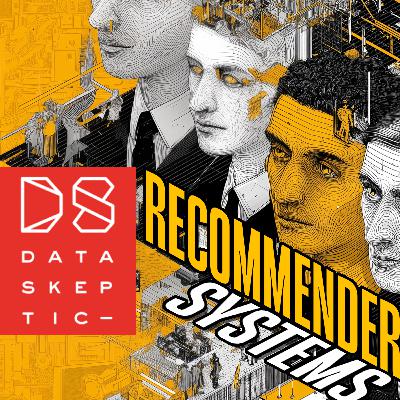

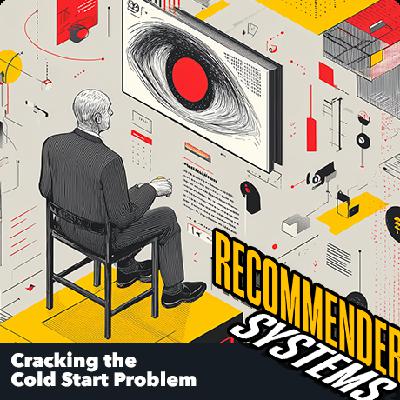
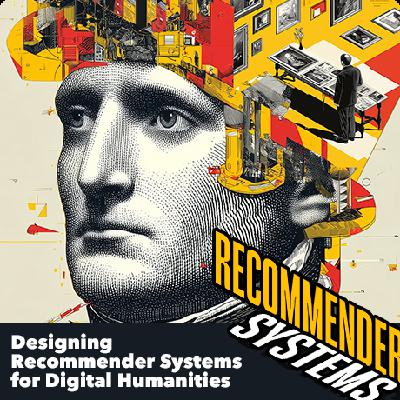
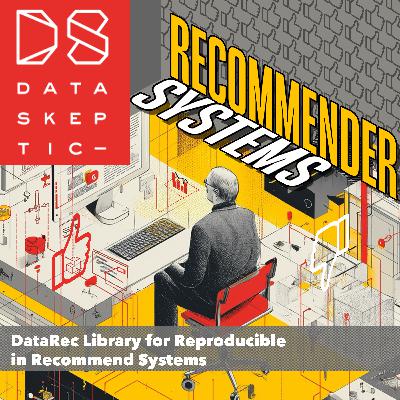

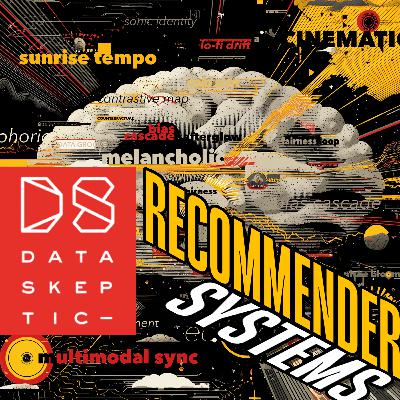
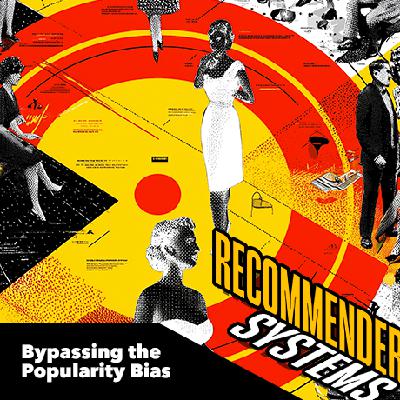
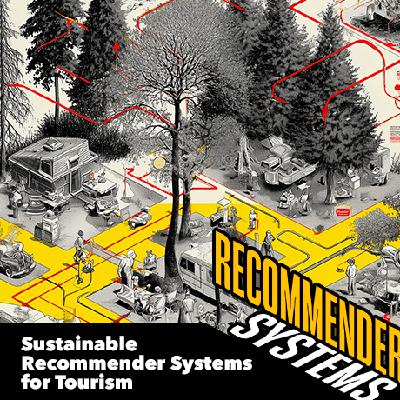

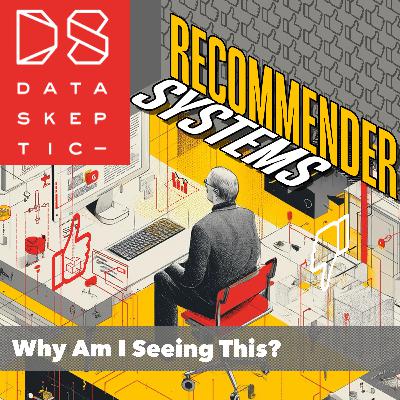
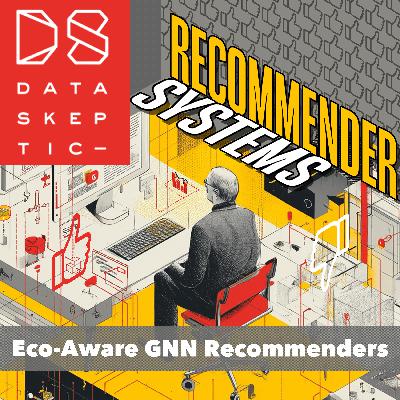
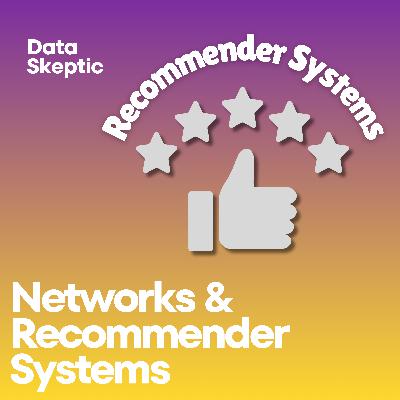
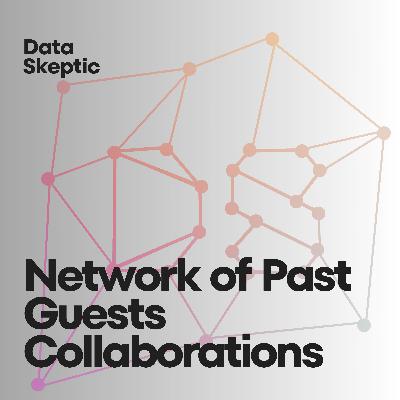
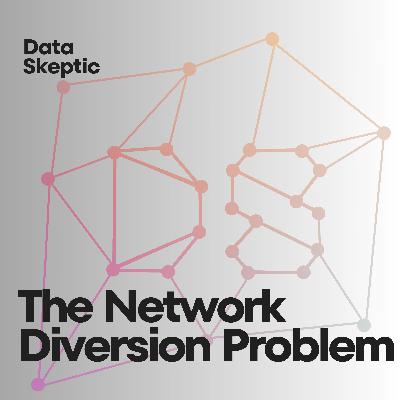
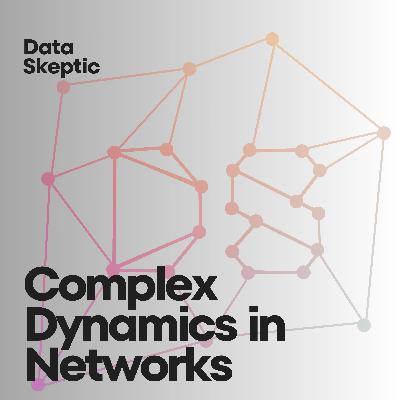




This is very incredible. I truly enjoyed it. I am here to share about anon vault at https://techiall.com/anon-vault/
🔴💚Really Amazing ️You Can Try This💚WATCH💚ᗪOᗯᑎᒪOᗩᗪ👉https://co.fastmovies.org
🔴WATCH>>ᗪOᗯᑎᒪOᗩᗪ>>👉https://co.fastmovies.org
You would normally use a 3D rendering programme or game engine that supports rendering animations and sequences to render sequences like Maya. Here are some general guidelines to assist you in doing that have a peek here https://thewordpoint.com/services/translation-service/film-script-translation depending on the number of countries you intend to release your film in, you may need to hire film screenplay translation services in more than one language if you want to deliver your tale to a global audience.
incredibly awful audio for some reason
Now a days surveys are crucial to implement any type of instructions or development works. So, it's great thing to conduct the surveys. That's why we (Tim Hortons) are conducting the surveys at the official survey site https://telltims-ca.com. In return we have providing free validation codes to the survey participants to redeem on their further visit.
Hi friends. I agree, this book is very useful. But I'm not strong on marketing. So I enlisted the help of a proven marketing agency, https://saphira.agency/. They helped me promote my business and make my marketing loud, bright, unique and effective. I am sure that you should contact this agency if you need help in promoting your brand or business.
Sponsored Social Media Posts: You can pay to turn one of your company's social media posts into an ad. This method allows you to select the target audience, region, and duration of the ad. Pay Per Click Ads. With this model, you pay every time someone clicks on your ad. Search engines such as Google offer this service where your ad appears at the top of the results page for your chosen keywords.
Visuals are key. Investing in high quality visual content for your website and social media is a must. Many users rely on images to decide who to follow and what messages to interact with. Consider including photos or videos of your products, services, facilities, or staff.
In general, as for the affiliate program for designers, it is best to find a special offer. I already know from experience that here https://masterbundles.com/become-our-affiliate/ in the company Master Bundles you can get up to 15% commission if you start cooperation with this service. For me for example it helped me a lot, I hope it will help you too. Good luck with this business.
Wow this is fascinating
the guest has classic psychological and groupthink issues in his research he needs to get out more
Hi guys in data skeptic. Thanks to share your valuable contents. May I acheive the text of your podcast? Wish luck.
great episode, cant wait to hear next one. Thanks!
Description?
@6:00: The threshold for statistical significance does not "depend on the outcome." It raises a red flag even to hear someone say that, especially the host of a "data science" podcast. (Of course, if he knew what he was talking about, he'd be a "statistician" instead.) He might more accurately have said that any such estimate of the minimum sample size depends on the number of planned comparisons and the assumed effect size for each measured effect. Confusion about this should disqualify someone from hosting such a podcast.
@2:19: Too much interpretation as if respondents were randomly sampled. Respondents self-selected.
thanks so much for sharing the results
@1:03: It doesn't "beg the question"; it "raises the question." To "beg the question" is to commit a logical fallacy in which one assumes the conclusion.
Is the spin-off / journal club podcast on castbox?